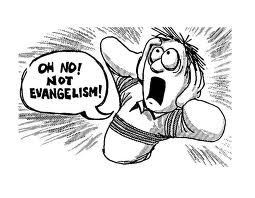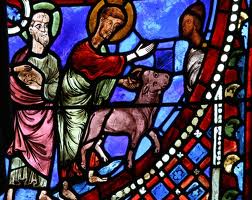 Qualifications For The Five Fold – Part I
Qualifications For The Five Fold – Part I
Now as Jesus was walking by the Sea of Galilee, He saw two brothers, Simon who was called Peter, and Andrew his brother, casting a net into the sea, for they were fishermen, and He said to them, “Follow Me, and I will make you fishers of men.” Immediately they left their nets and followed Him. Matthew 4:18-22
As He passed by, He saw Levi the son of Alphaeus sitting in the tax booth, and He said to him, “Follow Me!” And He got up and followed Him. And it happened that He was reclining at the table in his house, and many tax collectors and sinners were dining with Jesus and His disciples, for there were many of them, and they were following Him. Pharisees saw that He was eating with the sinners and tax collectors, and said to his disciples, “Why is He eating and drinking with tax collectors and sinners?” And hearing this, Jesus said to them, “It is not those who are healthy who need a physician, but those who are sick, I did not come to call the righteous but sinners.” Mark 2:14-17
 He carried me away in the Spirit to a great and high mountain, and showed me the holy city, Jerusalem, coming down out of heaven from God…. And the wall of the city had twelve foundation stones, and on them were the names of twelve apostles of the Lamb. Rev. 21: 10, 14
He carried me away in the Spirit to a great and high mountain, and showed me the holy city, Jerusalem, coming down out of heaven from God…. And the wall of the city had twelve foundation stones, and on them were the names of twelve apostles of the Lamb. Rev. 21: 10, 14
While on earth, Jesus was choosing men to become foundation stones for his New Jerusalem, choosing men to be evangelists, shepherds, teachers, prophets, and apostles. What kind of men did he choose? What were their credentials? What did Jesus do to “equip” these saints for the work of service that would impact centuries to come?
It is interesting to note that he did not pick one scribe, the theologians of his day, nor one Pharisee, the highly religious person of his day, nor started a school for rabbis, the spiritual teachers of his day. In fact scribes and Pharisees are the only people he verbally criticizes with a venomous zeal. In stead he chose every day, common, religiously untrained people: fishermen, tax collectors, and others by trade who were willing to lay down their occupations and careers to “Follow Me!”
Jesus was willing to live with them, walk with them, spent time talking, discussing, teaching, modeling, directing, just doing what he expected they would eventually do. He invested Himself in them; in turn, they dropped what they did, followed Him, and invested themselves in Jesus!
 Jesus was looking for was obedience: He spoke; they followed! He did not ask for resumes, conducted no interviews, nor demanded any formal academic or religious training. He spoke; they followed! Religious people were busy taking their sacrifices to the Temple, but Jesus said, “To obey is better than sacrifice.” He spoke; they followed!
Jesus was looking for was obedience: He spoke; they followed! He did not ask for resumes, conducted no interviews, nor demanded any formal academic or religious training. He spoke; they followed! Religious people were busy taking their sacrifices to the Temple, but Jesus said, “To obey is better than sacrifice.” He spoke; they followed!
To be an effective follower of Christ, a believer in Christ, a disciple of Christ, an evangelist propagating Christ, a shepherd leading a flock for Christ, a teacher expounding the Word of God about Christ, a prophet proclaiming the life of Christ, or an apostle overseeing the Body of Christ, you have to be obedient! When Jesus speaks; you must follow what He says in obedience! It is that simple.
Were these disciples very obedient? Scripture records they squabbled amongst them selves over power, who would sit on Jesus’ left or right when he rules His kingdom; He taught them in parables, then He had to reteach it to them in simple terms for they did not understand; He often rebuked them, “Oh ye of little faith;” Peter becomes known for “opening his mouth and inserting his foot”, yet Jesus chooses him to become “a rock” in this movement; and they all run, flee, and hide in fear when Jesus is crucified and become skeptical when first told of his resurrection. In spite of all this, they still qualify because Jesus chose them, and they followed. Jesus continues to extend Grace and Mercy, and they continue to receive and take it.
Ephesians 4 encourages the Church to “equip the saints for the work of service.” These initial followers were not yet equipped for service in spite of their training, in spite of walking by Jesus side, in spite have a personal relationship with Jesus, their Messiah. Peter denies Jesus three times, yet before his ascension Jesus affords Peter the opportunity reaffirm his love for Him three times, then commands, “Follow Me!!
Acts 1:4 records: “He commanded them not to leave Jerusalem, but to wait for what the Father had promised.” If they were obedient, he was about to “equip” them. “You will receive power when the Holy Spirit has come upon you.” Jesus’ followers, his disciples had been trained, had walked a spiritual journey with Jesus, but now they were going to be “equipped”; they were going to be “empowered” and that “empowerment” would require “obedience”. When Jesus’ Spirit, the Holy Spirit, speaks; you must follow what He says in obedience! It is that simple.
 As I have said often in past blogs - bottom line: Can you trust the Holy Spirit? Will you be obedient to what He reveals and says? Empowerment comes through obedience. He has equipped you with His Holy Spirit; now go in obedience!
As I have said often in past blogs - bottom line: Can you trust the Holy Spirit? Will you be obedient to what He reveals and says? Empowerment comes through obedience. He has equipped you with His Holy Spirit; now go in obedience!
































































